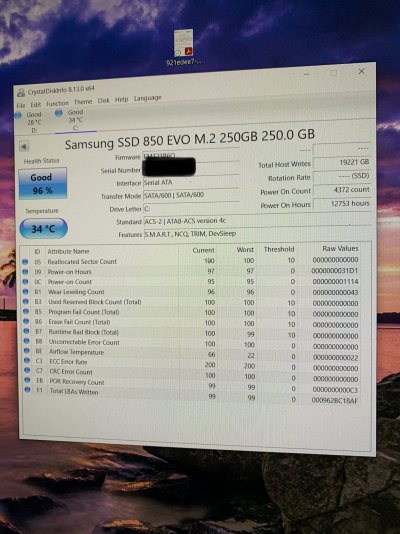I have purchased a SSD Samsung 850 Evo 250 GB. The guy from whom I bought this said that he doesn't have a PC as he sold everything so was to unable to provide me health report about TBW of drive so I thought it would be around 10-20 TB but when I received the SSD I found out it 34 TB. This SSD has 75 TBW official life. I want to know if I only use this to be my Windows 11 drive how much time will it live. Please people who have been using SSD as their operating system drive share their
1 SSD Size
2 Year of usage
3 Uses case as what number of things are installed in ssd
4 TBW used by the windows in that time
It will help me as well as a lot of people.
1 SSD Size
2 Year of usage
3 Uses case as what number of things are installed in ssd
4 TBW used by the windows in that time
It will help me as well as a lot of people.



